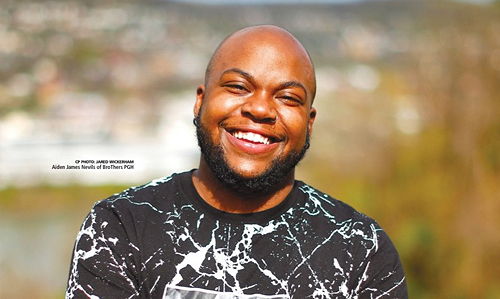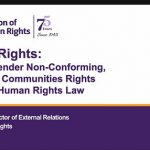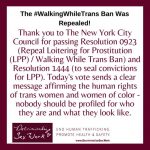Robert Kraft Had His Charges Dropped After Allegedly Getting a Hand Job In a Massage Parlor. The Women Didn’t | Rolling Stone
Advocacy Group Launches Grants Program for Decriminalizing Prostitution
NEWS RELEASE | FOR IMMEDIATE RELEASE
Media Contact:
Ariela Moscowitz, director of communications
[email protected] | (212)368-7874
Advocacy Group Launches Grants Program for Decriminalizing Prostitution
NEW YORK (Dec. 1, 2020) – Decriminalize Sex Work (DSW) launched a $150,000 grants program to fund projects that will have a measurable impact on decriminalizing adult prostitution in the U.S. DSW runs the only grants portfolio that exclusively funds projects to decriminalize consensual adult prostitution in the U.S. Most grants will be directed to sex worker-led organizations working to change laws on the local and state levels.
DSW awarded grants to the following recipients:
● Ceyenne Doroshow — Founder and executive director of Gays and Lesbians Living in a Transgender Society (G.L.I.T.S.) in NYC. G.L.I.T.S. addresses the stigmatization and criminalization of trans people due to laws prohibiting sex work. Ceyenne is also a prominent leader in the Black Trans Lives Matter movement and has been featured in national news outlets such as Vogue, GQ , and The Wall Street Journal.
● The Ishtar Collective — Vermont’s first-ever anti-trafficking and sex-worker-rights organization run by current and former sex workers, industry allies and survivors of human trafficking local to Vermont.
● SWOP Behind Bars — A national organization that assists currently and formerly incarcerated sex workers.
“In a grossly underfunded movement, $150,000 of grant money has the potential to make a big impact on decriminalizing consensual adult prostitution,” said Crystal DeBoise, DSW’s director of strategic partnerships. “Our grants program will support local, on-the-ground activists who share a mission to decriminalize sex work, promote health and safety, and fight human trafficking.”
Organizations that advocate for sex workers’ rights and practical solutions to ending human trafficking are gravely underfunded. The lack of funding is a result of stigma and misunderstandings about these populations. Also, a large share of the federal money allocated to stopping human trafficking is misused by law enforcement to arrest consensual adult sex workers and their clients.
DSW accepts grants on a rolling basis. Applicants should submit a letter of intent on DSW’s website.
###
Decriminalize Sex Work is a national organization pursuing a state-by-state strategy to end the prohibition of consensual adult prostitution in the United States. We work with local organizations, advocates, and lobbyists to build community support and convince legislators to stop prostitution-related arrests. Evidence shows that decriminalizing sex work will help end human trafficking, improve public health, and promote community safety.
Ex-prostitute Elisa Crespo vies to become first trans member of NYC Council | New York Post
The Palermo Protocol: 20 Years Later
November 24, 2020
The conflation of consensual adult sex work and human trafficking remains a harmful paradigm that continues to be promoted by a number of organizations and individuals, especially those who seek to prohibit prostitution. Human trafficking is a horrible human rights violation and exists in many labor sectors. Trafficking in agriculture and the hospitality industry is much more common than trafficking for the purposes of sexual exploitation, yet much of the world’s concern is focused on “sex trafficking.” Treating adults who freely engage in sex work as victims and over-relying on criminal justice to end trafficking have led to disastrous outcomes for sex workers.
The Protocol to Prevent, Suppress and Punish Trafficking in Persons, Especially Women and Children was one of three Palermo protocols adopted by the United Nations to supplement the 2000 Convention against Transnational Organized Crime (the Palermo Convention). Sex workers have been targeted under this protocol from its inception. With 20 years of data to consider, it is clear that the criminalization of sex work causes immeasurable harm and makes it more difficult to identify and assist actual victims of trafficking.
In “Missed opportunities and exclusion: sex workers reflect on two decades of anti-trafficking,” the International Committee on the Rights of Sex Workers in Europe (ICRSE) writes: “Sex workers and their organisations continue to challenge punitive anti-trafficking policy frameworks that target their workplaces and clients, rather than traffickers. Over the last twenty years, sex workers have not only had to combat the criminalisation of sex work, but have also endured global crises such as the 2008 financial crisis and the ongoing COVID-19 pandemic. They have also been faced with the erosion of human rights, shrinking civil society spaces, and volatile political environments.”
“Prostitution prohibitionists claim that trafficking increases in times of public crisis, but the reality is that poverty, precarity, and the need to cross borders to obtain a better life are the key factors leading people to sell sex,” the ICRSE says. “The post-COVID recession will be a crucial time to determine which approach is best suited to protect those most at risk in our society. Do we want a punitive approach that denies the root factors making people vulnerable to exploitation and trafficking? Or a community-led approach, where sex workers engage with policymakers and other marginalised communities to shape the decisions that will affect their lives?”

Artwork by Carys Boughton. All rights reserved. (Photo: Open Democracy)
DSW Newsletter #21 (December 2020)
Hero of the Month: Mataoe Aiden James Nevils

The Palermo Protocol: 20 Years Later

Transgender Day of Remembrance Summit

G.L.I.T.S. Opens First Housing Complex of its Kind

NYC Council Repeals ‘Walking While Trans’ Ban

Mark Your Calendars for December 17

 Hero of the Month: Mataoe Aiden...
Hero of the Month: Mataoe Aiden...
 The Palermo Protocol: 20 Years Later
The Palermo Protocol: 20 Years Later
 Transgender Day of Remembrance Summit
Transgender Day of Remembrance Summit
 G.L.I.T.S. Opens First Housing Complex of...
G.L.I.T.S. Opens First Housing Complex of...
 NYC Council Repeals ‘Walking While Trans’...
NYC Council Repeals ‘Walking While Trans’...
 Mark Your Calendars for December 17
Mark Your Calendars for December 17
DSW Newsletter Archive
Missed opportunities and exclusion: sex workers reflect on two decades of anti-trafficking | openDemocracy
To Protect Black Trans Lives, Decriminalize Sex Work | ACLU
Transgender Day of Remembrance Summit
November 19, 2020
The New York Transgender Advocacy Group (NYTAG) hosted a Transgender Day of Remembrance Virtual Summit on November 19 and 20. In addition to providing a space to remember those whose lives were lost, the summit was filled with informational, powerful, and inspirational panels and presentations, such as the transmasculine panel "What's the T: Transmen Talk Trauma, Sex Work, and Tina" and a presentation on "Environmental Justice: Advocating for Our Environment in a Post COVID-19 World.”
Many notable individuals were in attendance, including Sen. Brad Hoylman, co-sponsor of the bill to repeal the “Walking While Trans” ban (SB 2253/AB 654). Activist and civil rights attorney Alejandra Caraballo presented and Samuel Nemir Olivares, a progressive activist running for State Committee, also joined the event. Jumaane Williams, the public advocate of NYC, also spoke.
Ceyenne Doroshow, founder and executive director of G.L.I.T.S. (Gays and Lesbians Living in a Transgender Society) and DSW consultant, was one of the 2020 recipients of the Marsha P. Johnson Community Leader Award. Upon acceptance, Doroshow exclaimed, “I value you. I value your push. I value your stamina. … You are all capable of building the utopia you want.”

The New York State Division of Human Rights provided a Know Your Rights presentation to attendees. (Photo: DSW)

Ceyenne Doroshow was one of the 2020 recipients of the Marsha P. Johnson Community Leader Award. (Photo: DSW)
Watch the summit here:
DSW Newsletter #21 (December 2020)
Hero of the Month: Mataoe Aiden James Nevils

The Palermo Protocol: 20 Years Later

Transgender Day of Remembrance Summit

G.L.I.T.S. Opens First Housing Complex of its Kind

NYC Council Repeals ‘Walking While Trans’ Ban

Mark Your Calendars for December 17

 Hero of the Month: Mataoe Aiden...
Hero of the Month: Mataoe Aiden...
 The Palermo Protocol: 20 Years Later
The Palermo Protocol: 20 Years Later
 Transgender Day of Remembrance Summit
Transgender Day of Remembrance Summit
 G.L.I.T.S. Opens First Housing Complex of...
G.L.I.T.S. Opens First Housing Complex of...
 NYC Council Repeals ‘Walking While Trans’...
NYC Council Repeals ‘Walking While Trans’...
 Mark Your Calendars for December 17
Mark Your Calendars for December 17
DSW Newsletter Archive
G.L.I.T.S. Opens First Housing Complex of its Kind
November 18, 2020
G.L.I.T.S. (Gays and Lesbians Living in a Transgender Society) unveiled their brand new housing complex — the first housing program run by transgender individuals for transgender individuals in NYC. The building has 11 apartments and is located in the Woodhaven neighborhood of Queens. Ceyenne Doroshow, founder and executive director of G.L.I.T.S., plans to have each apartment lovingly decorated by a designer. The basement will hold an educational and learning center.
“Thirty years of a dream, of doing something like this,” Doroshow said at the opening ceremony. “But not just doing it; putting us in an area, in a location where we don't have to run.”
G.L.I.T.S. addresses the stigmatization and criminalization of trans people due to laws prohibiting sex work. Doroshow is a prominent leader in the Black Trans Lives Matter movement and has been featured in national news outlets such as Vogue, GQ, and The Wall Street Journal.

Ceyenne Doroshow and DSW’s Melissa Sontag Broudo celebrate the opening of the housing complex. (Photo: Melissa Sontag Broudo)

Ceyenne Doroshow’s dream becomes reality. (Photo: CNN)
DSW Newsletter #21 (December 2020)
Hero of the Month: Mataoe Aiden James Nevils

The Palermo Protocol: 20 Years Later

Transgender Day of Remembrance Summit

G.L.I.T.S. Opens First Housing Complex of its Kind

NYC Council Repeals ‘Walking While Trans’ Ban

Mark Your Calendars for December 17

 Hero of the Month: Mataoe Aiden...
Hero of the Month: Mataoe Aiden...
 The Palermo Protocol: 20 Years Later
The Palermo Protocol: 20 Years Later
 Transgender Day of Remembrance Summit
Transgender Day of Remembrance Summit
 G.L.I.T.S. Opens First Housing Complex of...
G.L.I.T.S. Opens First Housing Complex of...
 NYC Council Repeals ‘Walking While Trans’...
NYC Council Repeals ‘Walking While Trans’...
 Mark Your Calendars for December 17
Mark Your Calendars for December 17
